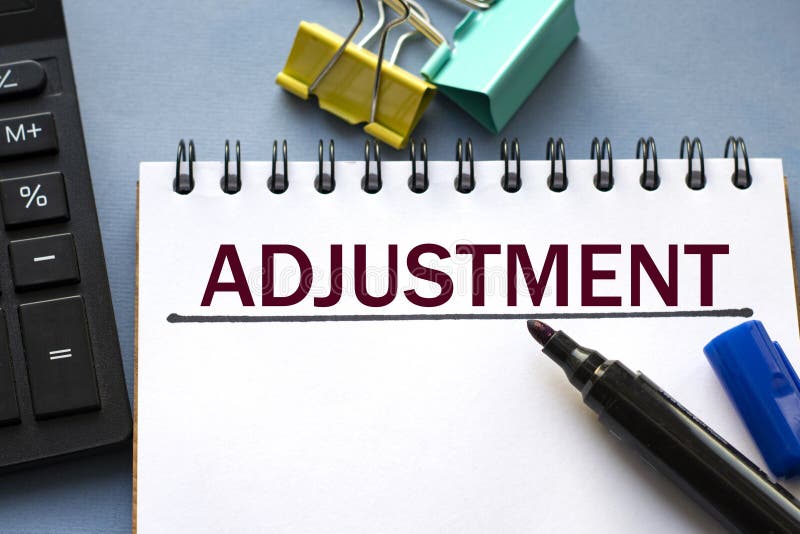In today’s competitive work environment, understanding and applying the concepts of reliability and validity are essential for developing a strong work ethic. Reliability refers to the consistency of a measure, while validity assesses the accuracy of the measure. Both are critical in ensuring that workplace assessments and evaluations are fair and effective. This article explores the definitions and types of reliability and validity, their importance in workplace assessments, and their impact on professional development. Additionally, we will discuss strategies to improve reliability and validity in work-related evaluations, ultimately helping professionals enhance their performance and achieve their career goals.
Come join gamesweed.com in exploring this topic extensively.
1. Definition of Reliability
Reliability refers to the consistency and stability of a measurement over time. In the context of workplace assessments, it signifies that the results of a particular evaluation are repeatable and dependable. When an assessment is reliable, it means that it consistently produces similar outcomes under consistent conditions. This characteristic is crucial for ensuring that the evaluation tools used in the workplace are dependable indicators of performance or skills.
For instance, if an employee takes the same skills test multiple times under the same conditions and receives similar scores each time, the test is considered reliable. Reliability is a fundamental aspect of any assessment tool because it reduces the likelihood of random errors or biases influencing the results. It ensures that the measurement accurately reflects what it is intended to measure, providing a stable foundation for making informed decisions.
There are different types of reliability, including test-retest reliability, which measures the consistency of results over time, and inter-rater reliability, which assesses the agreement between different evaluators. By understanding and prioritizing reliability in workplace assessments, organizations can ensure that their evaluation processes are fair, objective, and capable of providing meaningful insights into employee performance and development. This, in turn, fosters a work environment where employees can trust that their assessments are accurate reflections of their abilities and contributions.

2. Definition of Validity
Validity refers to the extent to which a test or assessment accurately measures what it is intended to measure. In the workplace, validity ensures that evaluation tools are effective in assessing the specific skills, knowledge, or abilities they claim to evaluate. A valid assessment provides meaningful and relevant data that can be used to make informed decisions about employee performance and development.
For example, if a skills test is designed to measure an employee’s proficiency in project management, its validity would be confirmed if high scores accurately reflect strong project management skills and low scores indicate areas needing improvement. Validity is essential for ensuring that assessments are not only accurate but also useful for their intended purpose.
There are various types of validity, including content validity, which examines whether the test covers the full range of the concept being measured, and construct validity, which evaluates whether the test truly measures the theoretical construct it claims to measure. Ensuring validity in workplace assessments helps organizations make fair and effective decisions regarding hiring, promotions, and training programs.
By prioritizing validity, organizations can create a more accurate and trustworthy evaluation system that truly reflects employee abilities and potential. This contributes to better alignment between employee skills and job requirements, ultimately enhancing overall workplace performance and satisfaction.

3. Types of Reliability (e.g., test-retest, inter-rater)
There are several types of reliability that are crucial for ensuring the consistency and dependability of workplace assessments. One primary type is test-retest reliability, which measures the stability of test results over time. If an employee takes the same assessment on two different occasions and receives similar scores, the test demonstrates high test-retest reliability.
Another key type is inter-rater reliability, which evaluates the level of agreement between different evaluators. When multiple raters provide similar scores or feedback for the same performance, it indicates strong inter-rater reliability. This is particularly important in subjective assessments, such as performance reviews, to ensure fairness and objectivity.
Internal consistency is another type, focusing on the consistency of results across items within a test. For example, in a skills assessment, if all items are measuring the same underlying skill, the test has high internal consistency.
Understanding these types of reliability helps organizations design and implement assessment tools that provide consistent and accurate measurements, ultimately contributing to fair and reliable evaluations of employee performance and potential.
4. Types of Validity (e.g., content, construct)
Validity in workplace assessments can be categorized into several types, each ensuring that the evaluation measures what it is intended to. Content validity refers to the extent to which a test covers the entire range of the concept it aims to measure. For instance, a project management test with high content validity would include questions covering all relevant aspects of project management.
Construct validity evaluates whether a test truly measures the theoretical construct it claims to measure. This type of validity is crucial for assessments designed to evaluate abstract qualities like leadership or creativity.
Criterion-related validity, which includes predictive and concurrent validity, assesses how well one measure predicts an outcome based on another measure. For example, a test with high predictive validity accurately forecasts future job performance.
Ensuring these types of validity in workplace assessments helps organizations create effective evaluation tools that provide meaningful, accurate, and useful insights into employee abilities and performance, thereby supporting better decision-making and professional development.
5. Importance of Reliability in Workplace Assessments
Reliability in workplace assessments is vital because it ensures that the evaluation tools consistently produce stable and dependable results. Reliable assessments minimize random errors and biases, providing a trustworthy measure of employee performance and skills. This consistency is crucial for making fair and objective decisions regarding hiring, promotions, and professional development.
When assessments are reliable, employees can have confidence that their evaluations accurately reflect their abilities and contributions. This trust in the assessment process fosters a positive work environment and encourages employees to engage in their roles with greater confidence and motivation.
Moreover, reliable assessments allow organizations to track employee progress over time accurately. By consistently measuring the same attributes, organizations can identify trends, strengths, and areas for improvement, leading to more effective training and development programs.
In summary, the importance of reliability in workplace assessments cannot be overstated. It provides a stable foundation for fair and objective decision-making, promotes employee trust and motivation, and supports continuous professional growth and development.

6. Importance of Validity in Workplace Assessments
Validity in workplace assessments is crucial because it ensures that the evaluation tools accurately measure what they are intended to measure. Valid assessments provide meaningful and relevant data that organizations can use to make informed decisions about hiring, promotions, and employee development.
When assessments are valid, they accurately reflect the skills, knowledge, and abilities they aim to evaluate. This accuracy helps in identifying the right candidates for specific roles and ensures that employees are assessed based on relevant criteria. Valid assessments also help in creating effective training programs by pinpointing specific areas where employees need improvement.
Furthermore, valid assessments contribute to fairness and equity in the workplace. Employees are evaluated based on their actual performance and abilities, rather than on irrelevant factors or biases. This fairness enhances employee trust in the assessment process and promotes a positive organizational culture.
Overall, the importance of validity in workplace assessments lies in its ability to provide accurate, relevant, and fair evaluations, which support better decision-making and foster a more equitable and effective work environment.

7. Impact of Reliability and Validity on Professional Development
The reliability and validity of workplace assessments significantly impact professional development by ensuring that evaluations are both accurate and consistent. Reliable assessments provide stable results over time, allowing for a clear understanding of an employee’s progress and areas of improvement. This consistency helps in tracking development accurately and setting realistic, measurable goals.
Validity ensures that assessments measure the right skills and competencies relevant to the job. When evaluations are valid, they accurately reflect an employee’s true abilities and potential. This accuracy allows for more targeted development plans, helping employees focus on areas that genuinely impact their performance and career growth.
Together, reliability and validity contribute to fair and effective professional development strategies. They provide a solid foundation for identifying training needs, assessing the effectiveness of development programs, and making informed decisions about promotions and career advancement. Ultimately, ensuring high reliability and validity in assessments supports meaningful professional growth and enhances overall job performance and satisfaction.

8. Strategies to Improve Reliability and Validity in Work-Related Evaluations
To improve reliability and validity in work-related evaluations, several strategies can be employed. First, standardize assessment procedures to ensure consistency in how evaluations are administered and scored. This includes using the same tools and conditions for all employees to minimize variability.
Second, train evaluators thoroughly to enhance inter-rater reliability. Providing clear guidelines and conducting regular calibration sessions can help ensure that different raters interpret and score evaluations consistently.
Third, review and update assessment tools regularly to maintain content and construct validity. Ensure that the tools accurately reflect the skills and competencies relevant to the job by seeking feedback from subject matter experts and incorporating recent developments in the field.
Additionally, pilot test new assessments before full implementation. This allows for the identification and correction of any issues with reliability or validity before they affect the broader evaluation process.
Finally, gather and analyze feedback from employees about the assessment process. Continuous improvement based on this feedback can help address any issues related to reliability and validity, leading to more effective and fair evaluations.
In conclusion, understanding and applying reliability and validity are crucial for effective workplace assessments. By ensuring consistency and accuracy in evaluations, organizations can make informed decisions that support fair professional development and performance management. Employing strategies to enhance these qualities leads to more dependable assessments, ultimately fostering a more equitable and productive work environment. Prioritizing these factors helps drive meaningful employee growth and organizational success.
gamesweed.com